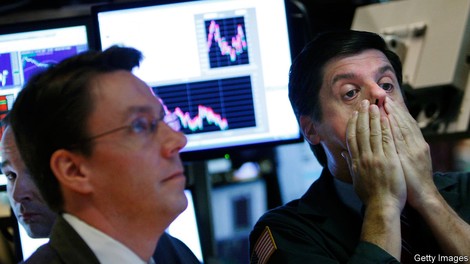Your podcast discovery platform
Curious minds select the most fascinating podcasts from around the world. Discover hand-piqd audio recommendations on your favorite topics.

piqer for: Globalization and politics Global finds
Sezin Öney, originally from Turkey, is based in Budapest and Istanbul. She her journalism career as a foreign news reporter in 1999 and she turned into political analysis as a columnist since 2007. Her interest in her main academic subject area of populism was sparked almost decade ago; and now she focuses specifically on populist leadership, and populism in Turkey and Hungary. She studied international relations, nationalism, international law, Jewish history, comparative politics and discourse analysis across Europe.
Next Big Thing—In The Form Of A Global Crisis
Allegations about a global economic crisis have been floating around for some time now. Interest rates are going up, causing stress in the financial markets. This article from the Economist debates where this crisis might erupt. First the article presents an overview of what hit when:
Financial crises tend to involve one or more of these three ingredients: excessive borrowing, concentrated bets, and a mismatch between assets and liabilities. The crisis of 2008 was so serious because it involved all three—big bets on structured products linked to the housing market, and bank-balance sheets that were both overstretched and dependent on short-term funding. The Asian crisis of the late 1990s was the result of companies borrowing too much in dollars when their revenues were in local currency. The dotcom bubble had less serious consequences than either of these because the concentrated bets were in equities; debt did not play a significant part.
So what may the next culprit triggering the upcoming global financial crisis be?
The article points a finger at corporate debt.
This is because in recent decades companies relied on rendering balance-sheets more “efficient” by raising debt. Moreover:
[A] prolonged period of low rates has made it very tempting to take on more debt. S&P, a credit-rating agency, says that as of 2017, 37% of global companies were highly indebted. That is five percentage points higher than the share in 2007, just before the financial crisis hit. By the same token, more private-equity deals are loading up on lots of debt than at any time since the crisis.
Commenting for the Economist, Matt King, a strategist at Citigroup, likens the current situation to a "game of musical chairs": Hence, as central banks withdraw monetary stimulus markets that is akin to taking seats away. Therefore, it might be a matter of time as the chairs lessen to the degree that this may trigger a global financial crisis—again.
